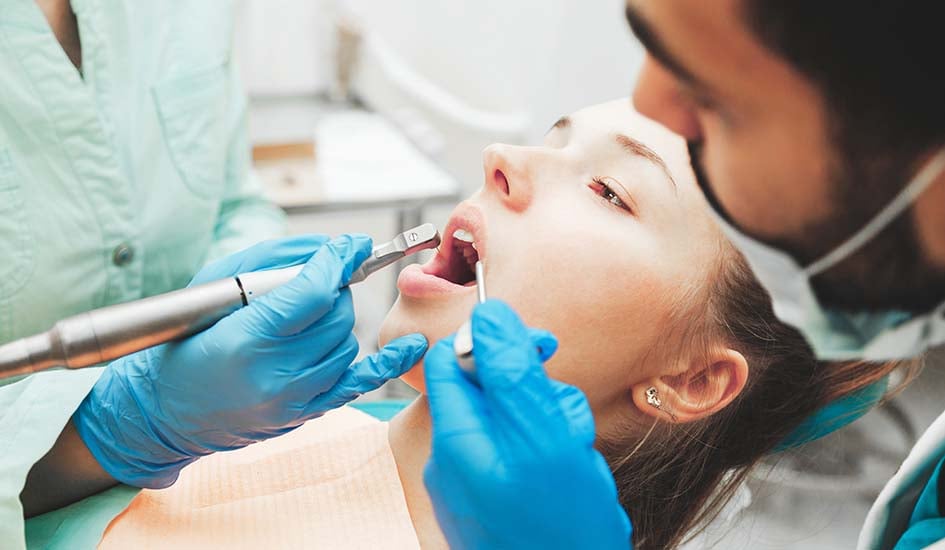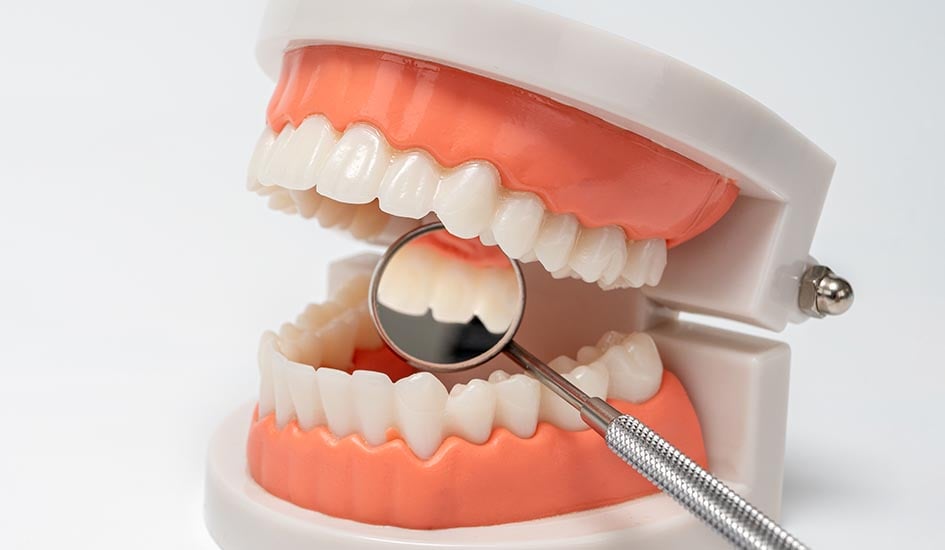
Tooth Sensitivity: Why is My Front Tooth Sensitive to Cold?
Eating ice-cream shouldn’t make you break into cold sweat or have a panic attack. If you have sensitive teeth however, this may very well be the case—and this condition may prove to affect many aspects of your everyday life.
Eating or drinking very cold, hot, sweet or acidic food or drinks does not need to be a horrific experience. A trip to the dentist would help to narrow down the possible underlying causes: is it a cracked tooth, or an issue with your gum tissue?
What’s causing you to flinch? We break it down for you in this post.
What Causes Tooth Sensitivity?
Wearing down of the tooth enamel
Our teeth are built such that the sensitive inner layers are protected from the different types of substances it comes into contact with everyday.
The enamel, the topmost layer of the tooth, protects these inner layer—known as the dentin.
A chipped, or broken tooth can compromise the integrity of the enamel. Tooth decay is also another possible cause this.
If the enamel contains fissures or is affected or destroyed in some way, the dentin becomes vulnerable to external forces. This then results in you experiencing tooth pain, and hence tooth sensitivity or “dentin hypersensitivity”.

Some of the reasons tooth enamel can become worn down:
- Grinding your teeth at night may be one of the reasons that your teeth become chipped or broken. This can happen for several reasons including an unaligned bite, or a stressful life events causing anxiety.
- A dental care routine where you may be brushing your teeth too hard or using an unsuitable toothbrush.
- Drinking too many acidic beverages and eating foods with a high acidic level can wear down the enamel and gums and cause tooth sensitivity too.
- Some gastrointestinal diseases causes acid to be brought up from the stomach and esophagus into the mouth. This acid can cause the enamel on your teeth to erode away.
- Frequent vomiting caused by gastroparesis or bulimia, the eating disorder, would also cause acid to be brought into contact with the enamel.
- Gum Disease
Another potential cause of tooth sensitivity is gum disease or receding gums.
An early stage of gum disease, known as Gingivitis, causes gums to become inflamed. If the problem is not resolved, and the condition of the gums worsen, Periodontitis—a condition where the gums separate from the teeth, may develop.
When gums recede, the root of the tooth and its underlying structures are exposed. This makes it vulnerable to external substances such as cold food or drink.
This may be caused by the habit of smoking or if plaque is allowed to accumulate.

How Do You Treat Tooth Sensitivity?
It depends on the severity of your condition. If it is mild, purchasing dental treatments at your local pharmacy may suffice.
To minimise the symptoms, first switch to a desensitising toothpaste. Also if you use a hard bristled toothbrush, try using one with softer bristles.
If the problem persists, a visit to the dentist may be necessary in order to understand the root of the issue and identify the cause of your oral health issue. For example, if the issue is an unaligned bite, your dentist may recommend a mouthguard. If it is receding gums, a surgical gum graft to restore your gum line may be recommended.
The best method of prevention is always to adopt a proper oral hygiene routine so your enamel and gums stay healthy.
Also having routine dental procedures like scaling and polishing done, can actually alert one of our Nuffield Dental professional hygienists to the issue of receding gums or cracked teeth.
.png?width=2223&height=447&name=Background%20(4).png)


-1.svg)



